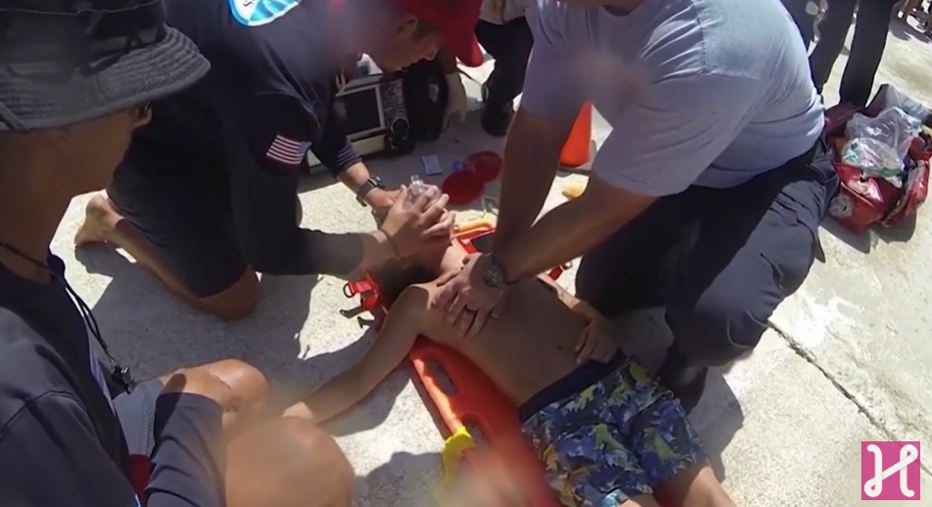CPR Differences in Adult & Kids |
w In an interview with the Health Channel, Dr. Zulma Berrios, Chief Medical Officer at West Kendall Baptist Hospital, talks about the similarities between CPR administration for adults and children.
In an interview with the Health Channel, Dr. Zulma Berrios, Chief Medical Officer at West Kendall Baptist Hospital, talks about the similarities between CPR administration for adults and children.
Dr. Berrios says that if someone is certified in adult CPR and is the only person around when a medical emergency is happening to a child, it’s better to try to help than do nothing. “You can easily translate knowledge from adult CPR to help children and young kids. The technique is similar,” Dr. Berrios explains. For adults and children, it is still 30 compressions to breath.
What is modified between the two is what is used to do the compressions. For infants, instead of using two hands, like you would for adults, you use two fingers on the chest, at the bottom of the breastbone. For bigger kids you can use one or two hands. Ultimately, you want to make sure you are pushing the blood out of the heart and continuing the circulation of blood. Do not hesitate to jump in as needed until help arrives because something is always better than nothing.
Meric Tendrich, the co-owner of Little Swimmers, is also being interviewed and he stresses the importance of taking CPR classes. He says that regardless if you have a pool or go swimming often, understanding how to administer CPR is essential to being a good citizen and serving your community. Meric recounts a time that the other co-owner of Little Swimmers, Gerald Little, witnessed a gentleman collapse at a restaurant. “He was having a heart attack. [Gerald] began CPR, he started the 911 process,” Meric says. The Hollywood fire department came and were able to save the man. Meric ends by saying, “It’s not just about the water, it’s about really anywhere.”
Watch the full segment of Dr. Zulma Berrios and Meric Tendrich talking about CPR for adults and children, here: https://youtu.be/tCsF1QGsELQ








